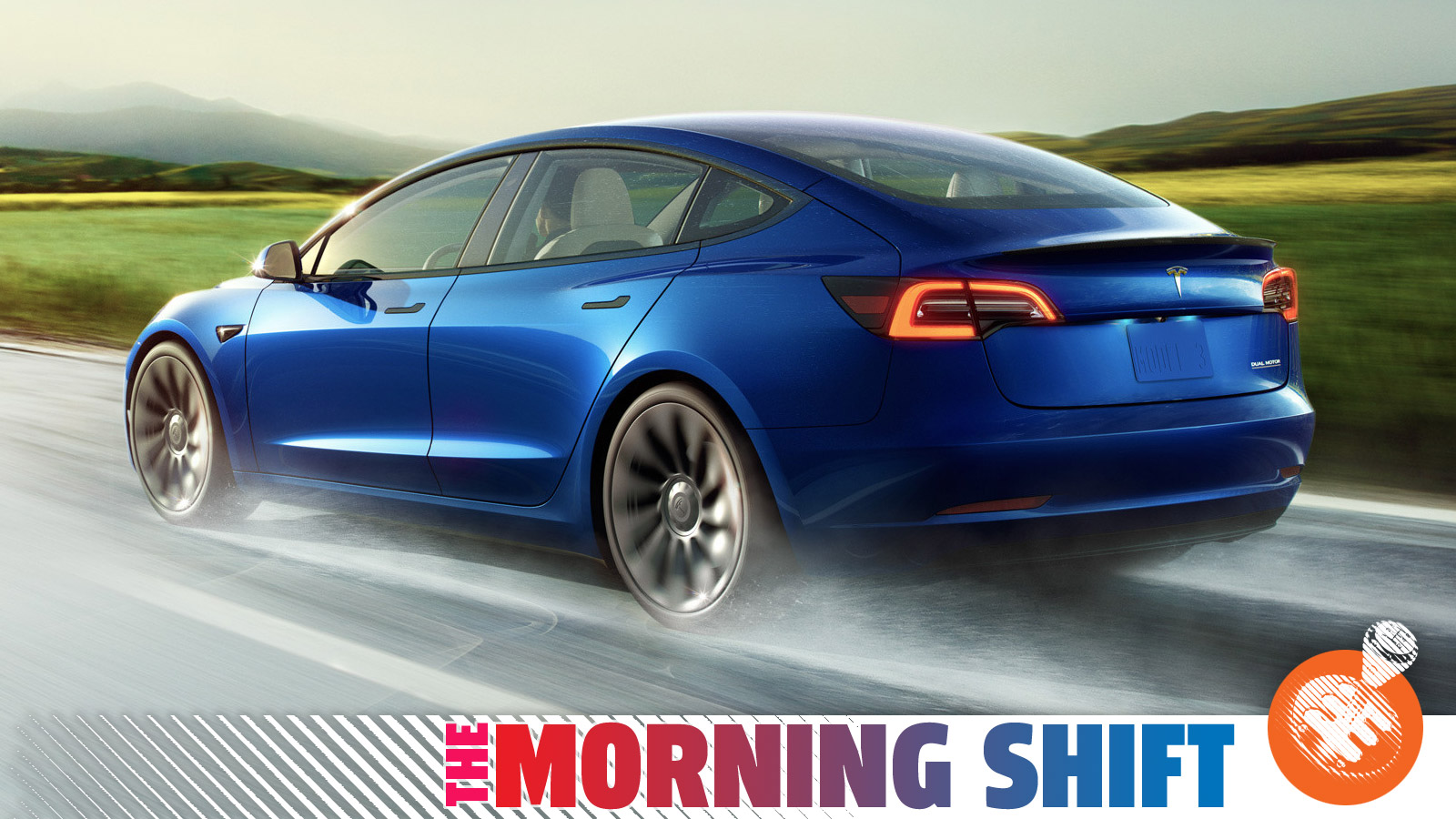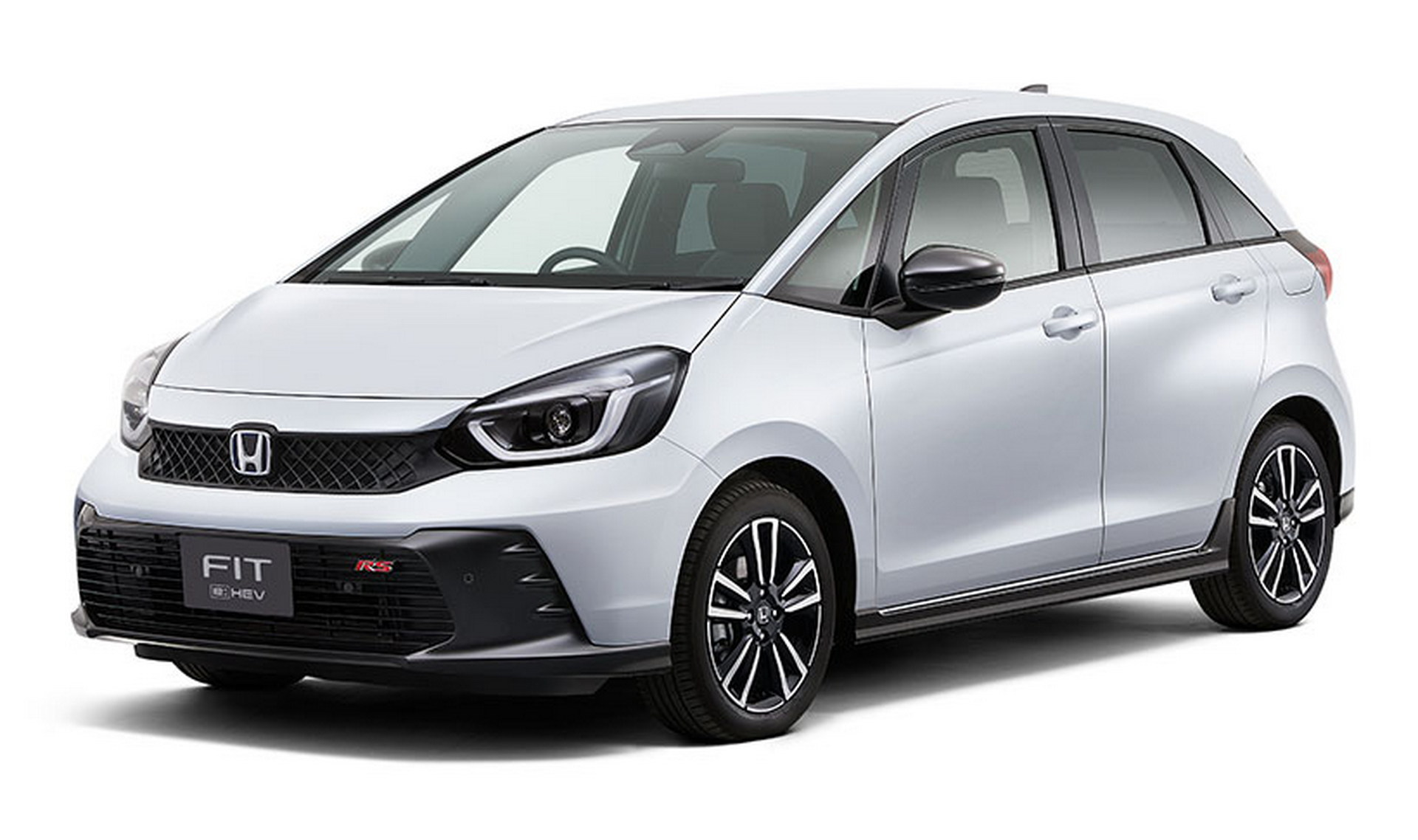Tesla Says It's Already Well On Its Way To Doubling Last Year's Output
CEO Elon Musk predicts it'll finish the year with 2 million vehicles built, but of course he's set his sights considerably higher.
Tesla believes it will finish the year strong, Volkswagen is turning to new benefactors to spin off Porsche on the stock market and automakers have finally started to understand how the silicon business works. All that and more in The Morning Shift for Friday, August 5, 2022.
1st Gear: A Tenth of 20 Million
Tesla built one million cars across all of its factories last year. It wants to build 20 million by 2030. This seems, frankly, ridiculous, but CEO Elon Musk reckons that with 10 to 12 "gigafactories" (it currently has five, and one of those just makes home solar panels ), it can meet that target. By the end of this year, it expects to hit 2 million, and it's already just 500,000 shy. From Automotive News:
Total Tesla production in 2021 was just over 1 million vehicles, but Musk said Thursday that the current run rate was 1.5 million vehicles from four factories: Fremont, California; Shanghai; Berlin-Brandenburg, Germany; and Austin, Texas.
"If all goes as planned, we will be exiting 2022 at a 2 million annual run rate," Musk said, adding that production in Tesla's two newest factories, in Germany and Texas, was facing "10,000" small problems that were being solved "one at a time."
Musk added that Tesla could announce a new Gigafactory location before the year is out, and that the Cybertruck will kick off production in the middle of 2023. By the time it does — assuming that timeframe is accurate — there will be a range of alternative battery-electric pickups on sale from every American brand. The Cybertruck will be popular because it's a Tesla, but how will it compare qualitatively? That's the question on my mind, anyway.
2nd Gear: The Mythical Porsche IPO
Volkswagen really, really wants to make Porsche's initial public offering happen, but it's been taking longer than expected. The company has reportedly turned to the Middle East state investments to ease things along. From Bloomberg:
Porsche is trying to secure anchor investments from some of the largest Middle Eastern sovereign wealth funds, as the iconic sports-car maker looks to pull off one of Europe's biggest listings amid market headwinds and valuation concerns, people familiar with the matter said.
Abu Dhabi's Mubadala Investment Co. and ADQ are among those considering committing funds to the Volkswagen AG unit's listing, according to the people, who asked not to be identified discussing confidential information. State-owned entities in other Gulf markets, including Saudi Arabia, are also exploring investments, they said.
This is getting a little desperate for Volkswagen, which has long publicized a desire to spin Porsche off but had to put the plan on ice late last year. Around that time, word on the street was that the German automaker was seeking an IPO of 90 billion euros. That goal seems to have been tempered along with the cooling of the stock market:
Securing more big backers would be a vote of confidence as the German carmarker looks to push a premium valuation for Porsche. The German state of Lower Saxony, another Volkswagen shareholder, and the controlling Porsche-Piech family are seeking a valuation of no less than 60 billion euros ($62 billion), the people said.
And investors still have many questions, particularly how independent Porsche could ever be under such a scheme:
In early meetings with portfolio managers, the IPO has been pitched as a chance to invest in a company that combines the best of carmaking rivals like Ferrari NV and luxury brands such as Louis Vuitton. But some investors are concerned about a listing structure that fails to make Porsche more independent from its parent, as well as headwinds in the IPO market, people familiar with the matter said previously.
Last month's decision to put Porsche Chief Executive Officer Oliver Blume in charge of parent Volkswagen has also drawn scrutiny from investors. In a Bernstein & Co. poll of 58 fund managers, 71% said Blume's dual role is a clear negative for the IPO.
The plan seems less attractive to everyone by the day, but Volkswagen has evidently decided this is Porsche's destiny.
3rd Gear: Speaking of...
July was far from a banner month for car sales in Germany, as consumers purchased 13 percent fewer vehicles compared to June, Automotive News reports:
Electric-car maker Tesla was the biggest monthly winner with registrations up 142 percent for a 0.6 percent market share.
Total sales of battery-electric vehicles rose 13 percent to 28,815 for a 14 percent market share.
Other monthly winners included Land Rover, up 62 percent; Dacia, up 24 percent; Seat, up 9 percent; Porsche, up 5 percent; and Toyota, up 3.9 percent.
German premium brands had a bad month with Mercedes-Benz down 23 percent; BMW down 15 percent; and Audi down 7 percent.
VW brand, the German market leader, saw registrations plunge 20 percent, while Ford was down 30 percent and Opel's volume dropped by 12 percent.
2022 thus far has seen the fewest new car registrations in Germany in the past three decades — even worse than the first seven months of the COVID-19 pandemic in 2020.
4th Gear: Carmakers are Cowering to Chipmakers
The global semiconductor shortage is easing — you can now buy a graphics card for sort of close to MSRP, for example — but automakers have been understandably spooked. And even once supplies are back to where they were pre-2020, the relationship between car manufacturers and silicon suppliers isn't going back, as an illuminating report courtesy of Reuters tells us:
C.C. Wei, chief executive of the world's biggest chipmaker Taiwan Semiconductor Manufacturing Co, said he had never had an auto industry executive call him – until the shortage was desperate.
"In the past two years they call me and behave like my best friend," he told a laughing crowd of TSMC partners and customers in Silicon Valley recently. One automaker called to urgently request 25 wafers, said Wei, who is used to fielding orders for 25,000 wafers. "No wonder you cannot get the support."
Thomas Caulfield, GlobalFoundries Inc chief executive, said the auto industry understands it can no longer leave the risk of building multibillion-dollar chip factories to chipmakers.
"You can't have one element of the industry carry the water for the rest of the industry," he told Reuters. "We will not put capacity on unless that customer is committed to it, and they have a state of ownership in that capacity."
Car companies use older, bespoke components that are obsolete as far as the consumer electronics industry is concerned. Automakers are just one class of client for producers like TSMC, who also supply the likes of Apple and Samsung.
Simultaneously, automakers have tried desperately to rebrand themselves as tech companies in the public eye over the last decade, jealous of Apple's attention — while also taking no steps to actually become tech companies, and take a more hands-on approach to chip sourcing and production. The supply chain shortage has shown them where they stand. It seems like they get it now.
"We have understood that we are a part of the semiconductor industry," said Volkswagen Group's Berthold Hellenthal, a senior manager for semiconductor management. "We have now people dedicated just to strategic semiconductor management."
5th Gear: BMW Hasn’t Given Up on Hydrogen Yet
The Neue Klasse platform will form the basis for BMW's EV future. But the automaker isn't completely spurning hydrogen fuel-cell technology either, as the company's CEO believes it still bears relevance in some markets. From Automotive News:
"In our view, hydrogen is the missing piece of the puzzle that can complement electromobility places where battery-electric drivetrains are unable to gain traction," Zipse said on the company's earnings call on Wednesday.
The first cars on the Neue Klasse platform are due in 2025 and will initially include a sedan similar in size to the 3-Series midsize car and a "sporty SUV," Zipse said on the call. "We could also imagine a hydrogen drivetrain for this new vehicle generation," he added.
BMW will start limited production at the end of the year of a hydrogen fuel-cell version of the X5 large crossover, called iX5 Hydrogen. "We are already thinking about a possible next generation," Zipse said.
There are arguments to be made for hydrogen in the commercial sector. But with most hydrogen being derived from fossil fuels anyway, and the eternal infrastructure struggle, the case never seems to get any more convincing.
Reverse: Before This, They Were Literally Gas-Lit
On this day 108 years ago, someone said to themselves "I think I can beat it" while staring at a light for the very first time:
OK, not really — the first traffic signal with a yellow light was deployed six years later. That's when we really started tempting fate.
Neutral: What Do I Have to Do?
...to have the just-revealed Honda Fit RS in my life? (I know the answer to this question, and, unfortunately, the naturalization process for many countries is long and arduous.)

